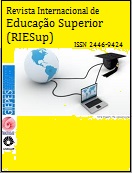Abstract
The purpose of this article, which is based on a descriptive study is measure the impact that had the Bologna Agreement in the Chilean higher education system. To this end and through the use of primary and secondary sources, analyzes different aspects of the future of the university system, associated with the objectives outlined in the Bologna Agreement. The compiled evidence to conclude that the Agreement had a positive impact in areas such as: the assimilation of transferable credit system (TCS-Chile) in CRUCH universities, mainly; academic and student mobility in pre y graduate who has experienced a substantial increase albeit low relative to gross enrollment of the sector, so it is still far from the record level observed in developed countries; interinstitutional cooperation and work in networks (between institutions in Latin America and between Latin and European universities), who had a remarkable progress in the last decade, which in the medium to long term could facilitate the creation of a higher education space Latin American. On the other hand, it had weak impact or little significance in relation to: the titrations and validation processes for studies associated with them, as they are supported by very diverse nature of normative and different dates; the curriculum and training organized around the cycle, as follows coexisting in Chilean universities a mix between the traditional Napoleonic model and the cycle scheme proposed in Bologna; excessive linking of undergraduate studies with the requirements of the productive sector, which results in deterioration of the academic function of the university; and processes that ensure the quality that continue to evolve in Chile and the Latin American region more autonomously.
A Revista Internacional de Educação Superior utiliza a licença do Creative Commons (CC), preservando assim, a integridade dos artigos em ambiente de acesso aberto.

